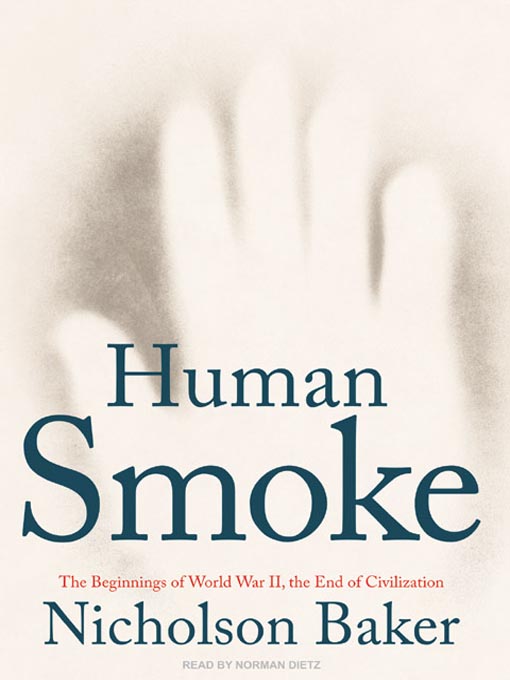
Human Smoke
The Beginnings of World War II, the End of Civilization
فرمت کتاب
audiobook
تاریخ انتشار
2008
نویسنده
Norman Dietzناشر
Tantor Media, Inc.شابک
9781400177899
کتاب های مرتبط
- اطلاعات
- نقد و بررسی
- دیدگاه کاربران
نقد و بررسی

At the beginning of this production, with its squibs of historical memorabilia, vignettes, diary entries, speech fragments, and the like, one worries that 14 hours of the same might be too much. But soon the shape of Baker's narrative emerges. Drawing mainly on material from the 1930s and '40s, he gives listeners a fresh look at "the good war" and the Holocaust. We hear comments from sources as diverse as Gandhi, Himmler's masseuse, ghetto occupants, and Roosevelt, who, along with Churchill, doesn't come off too well with respect to the events that took place. Norman Dietz doesn't imitate any of the well-known voices. Instead he lets the momentum build naturally, sometimes horrifyingly, sometimes poignantly, until the impact is stronger than it might even be in print. J.B.G. (c) AudioFile 2009, Portland, Maine

February 4, 2008
“Burning a village properly takes a long time,” wrote a British commander in Iraq in 1920. In this sometimes astonishing yet perplexing account of the destructive futility of war, NBCC award–winning writer Baker (Double Fold
) traces a direct line from there to WWII, when Flying Fortresses and incendiary bombs made it possible to burn a city in almost no time at all. Central to Baker's episodic narrative— a chronological juxtaposition of discrete moments from 1892 to December 31, 1941—are accounts from contemporary reports of Britain's terror campaign of repeatedly bombing German cities even before the London blitz. The large chorus of voices echoing here range from pacifists like Quaker Clarence Pickett to the seemingly cynical warmongering of Churchill and FDR; the rueful resignation of German-Jewish diarist Viktor Klemperer to Clementine Churchill's hate-filled reference to “yellow Japanese lice.” Baker offers no judgment, but he also fails to offer context: was Hitler's purported plan to send the Jews to Madagascar serious, or, as one leading historian has called it, a fiction? Baker gives no clue. Yet many incidents carry an emotional wallop—of anger and shock at actions on all sides—that could force one to reconsider means and ends even in a “good” war and to view the word “terror” in a very discomfiting context.

























دیدگاه کاربران